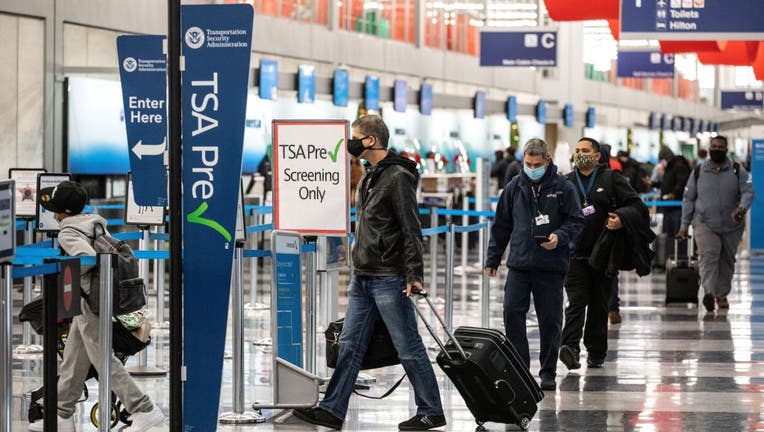TSA to require masks at screening checkpoints as new strains of COVID-19 hit the US

FILE - Travelers wearing face masks line up for security checks at O'Hare International Airport in Chicago, the United States, on Nov. 25, 2020. (Xinhua/Joel Lerner via Getty Images)
As new strains of COVID-19 appear across the US, officials are making masks a requirement for travelers.
The acting secretary of Homeland Security directed the Transportation Security Administration (TSA) to take steps to protect passengers and employees in the transportation system. This will include expanding the areas where people must wear masks while traveling.
Acting Secretary of Homeland Security David P. Pekoske announced that a National Emergency Determination had been made to mitigate the spread of COVID-19. According to the announcement, this new determination stems from a previous determination on March 13th, 2020, that the spread of COVID-19 constitutes a national emergency.
The determination grants the TSA certain authorities required to implement an executive order issued by President Biden on January 21, titled the "Executive Order on Promoting COVID-19 Safety in Domestic and International Travel."
Get breaking news alerts in the FOX5NY News app. Download for FREE!
According to a statement from the public affairs office of the U.S. Department of Homeland Security, the TSA will be requiring individuals to wear a mask at TSA screening checkpoints. Masks will also be required throughout the commercial and public transportation system.
In the announcement, Pekoske wrote, "The CDC, the Surgeon General, and the National Institutes of Health have concluded that mask-wearing, physical distancing, appropriate ventilation, and timely testing can mitigate the risk of travelers spreading COVID-19."
Pekoske concluded the announcement, "I specifically direct the Transportation Security Administration to use its authority to accept the services of, provide services to, or otherwise cooperate with other federal agencies, including through the implementation of countermeasures with appropriate departments, agencies, and instrumentalities of the United States in order to address a threat to transportation, recognizing that such threat may involve passenger and employee safety."

